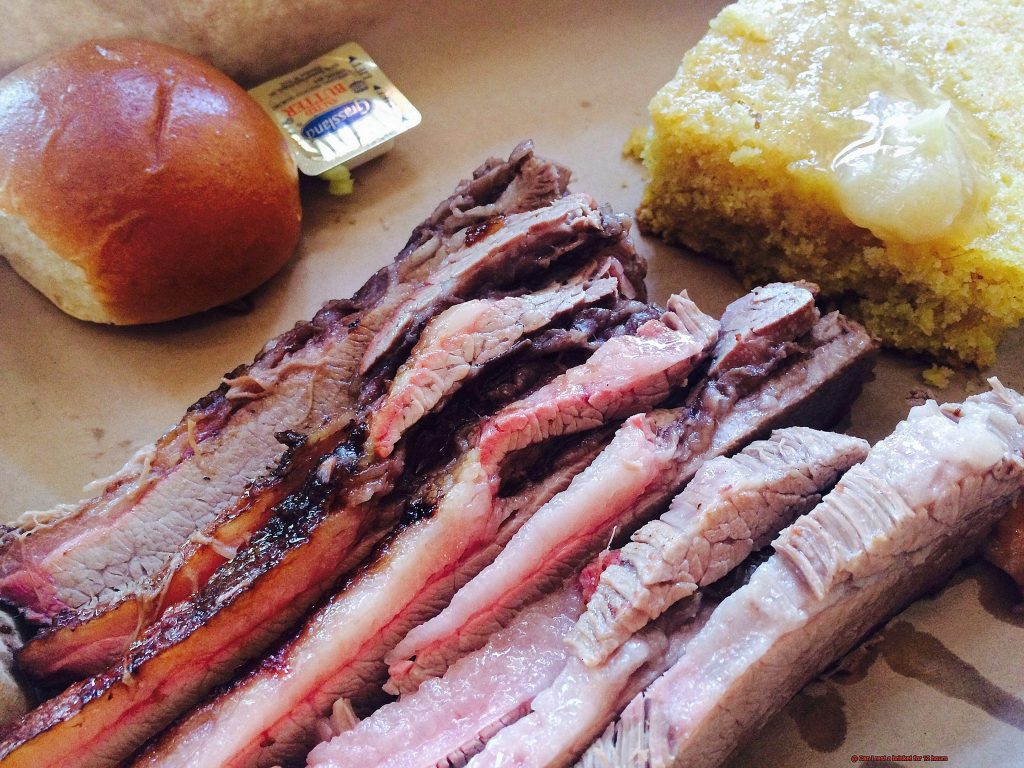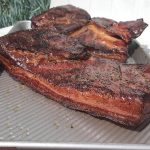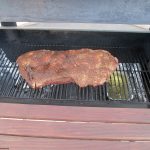As a true barbeque aficionado, you understand the agony of waiting for that brisket to cook. The tantalizing aroma of the juicy, tender meat slowly smoking on the grill is enough to make your mouth water. But what happens when it’s time to take it off the heat? Can you rest brisket for 12 hours?
Resting a brisket means allowing it to sit after cooking, giving the juices time to settle and redistribute throughout the meat. This results in a more succulent, flavorful brisket. However, the answer to whether 12 hours is too long or not isn’t as straightforward as you might think.
Sure, leaving your brisket to rest for an extended period can result in even juicier and tastier meat. But let it sit out too long and you risk drying out your precious brisket and losing its texture.
In this blog post, we’ll explore everything there is to know about resting a brisket – from what it actually means to how long is too long. We’ll also share some insider tips and tricks so that you can get the best possible results when resting your own brisket.
So if you’re passionate about barbeque and want to learn more about how to perfect your brisket game, keep reading.
Contents
What Is Brisket?
Brisket is a delicious and flavorful beef cut that is popular in many cuisines worldwide. It is located in the lower chest area of the cow and is known for its tough and fatty texture, which requires a long, slow cooking process to make it tender and juicy.
In Texas, brisket is considered a staple food, and they have perfected the art of smoking it for up to 18 hours to achieve the perfect tenderness and smoky flavor. Once cooked, this mouth-watering cut of meat can be served sliced thinly with barbecue sauce on top or as a sandwich with bread and toppings. In Jewish cuisine, brisket is braised with onions and served as a traditional holiday dish.
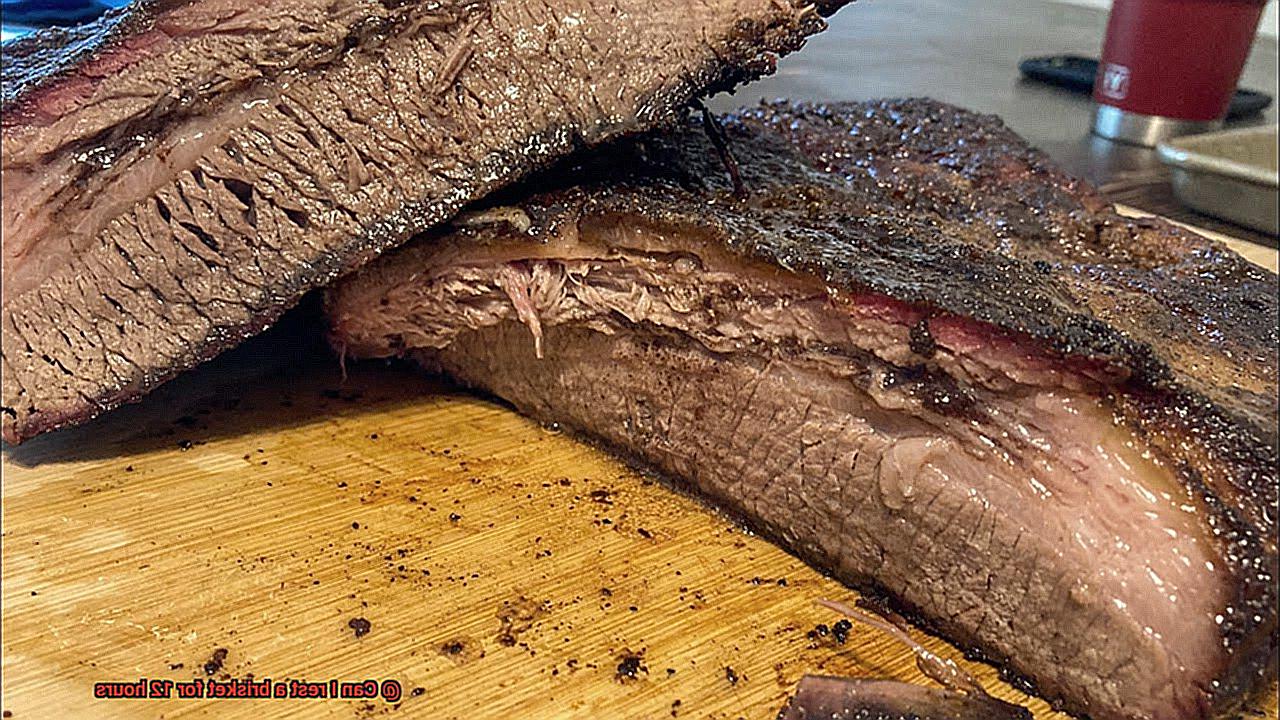
When preparing brisket, it’s crucial to rest the meat after cooking to allow it to retain its juices and flavors. The recommended resting time for a brisket is between one to four hours, depending on the size of the cut. Resting for too long can cause the meat to cool down significantly, making it less enjoyable when served.
If you plan to rest your brisket for an extended period, like 12 hours, you need to ensure that it is well-wrapped to prevent any moisture loss. Wrapping your brisket in foil or butcher paper will help retain the meat’s moisture and prevent it from drying out. Additionally, it’s best to rest your brisket in a warm environment at around 140°F so that the meat stays at a safe temperature while still allowing it to rest.
Why Rest a Brisket?
The secret to achieving that melt-in-your-mouth texture and mouth-watering flavor is all in how you treat it after cooking. So why is resting a brisket important? Allow me to share my expertise on the subject.
First and foremost, resting a brisket is crucial for allowing the meat to relax and reabsorb any juices lost during the cooking process. Think of it as hitting the pause button on all that juicy goodness. By letting the brisket rest for at least an hour, you give those juices time to redistribute throughout the meat resulting in a more tender and flavorful bite.
But what about resting a brisket for 12 hours? While it’s possible, there are factors to consider such as the size of the brisket and cooking method used. Smaller briskets may dry out if rested too long, while larger ones may need more time to even out the internal temperature. Additionally, if you’re smoking your brisket, you may not need as long since the meat will continue to cook and absorb smoke flavor even after being taken off the heat. However, if you’re roasting or using a slow cooker, 12 hours of resting time could be beneficial.
Aside from preserving those precious juices, resting your brisket also makes it easier to slice and serve. Cutting into hot meat right off the grill or out of the oven would cause all those essential fluids to escape, leaving you with dry meat. By letting it rest, you allow those juices to redistribute and create those luscious slices that will have your guests begging for seconds.
How Long Should You Rest a Brisket?
As the saying goes, good things come to those who wait, and this couldn’t be truer when it comes to resting a brisket. Resting your brisket is a crucial step in achieving a tender and juicy meat that is worth all the time and effort you put into it. But how long should you actually rest it for?
Well, as an expert on the matter, I can tell you that there isn’t a one-size-fits-all answer to this question. The ideal resting time will depend on several factors such as the size of the brisket, cooking method, and personal preference.
Size Matters:
Generally, most pitmasters recommend resting a brisket for at least an hour before slicing into it. However, if you’re dealing with a larger brisket, say 15 pounds or more, you may need to rest it for longer to ensure that it’s fully rested. In this case, a rest time of 2-3 hours would be more appropriate.
Cooking Method:
Your cooking method also plays a role in determining how long to rest your brisket for. If you’re smoking your brisket low and slow, a longer resting time may be necessary to allow the meat to fully relax. Conversely, if you’re cooking your brisket hot and fast, a shorter rest time may be appropriate.
Personal Preference:
Lastly, personal preference plays a significant role in determining how long to rest your brisket for. Some people prefer a firmer texture and less juice while others prefer their brisket falling apart and oozing with juice.
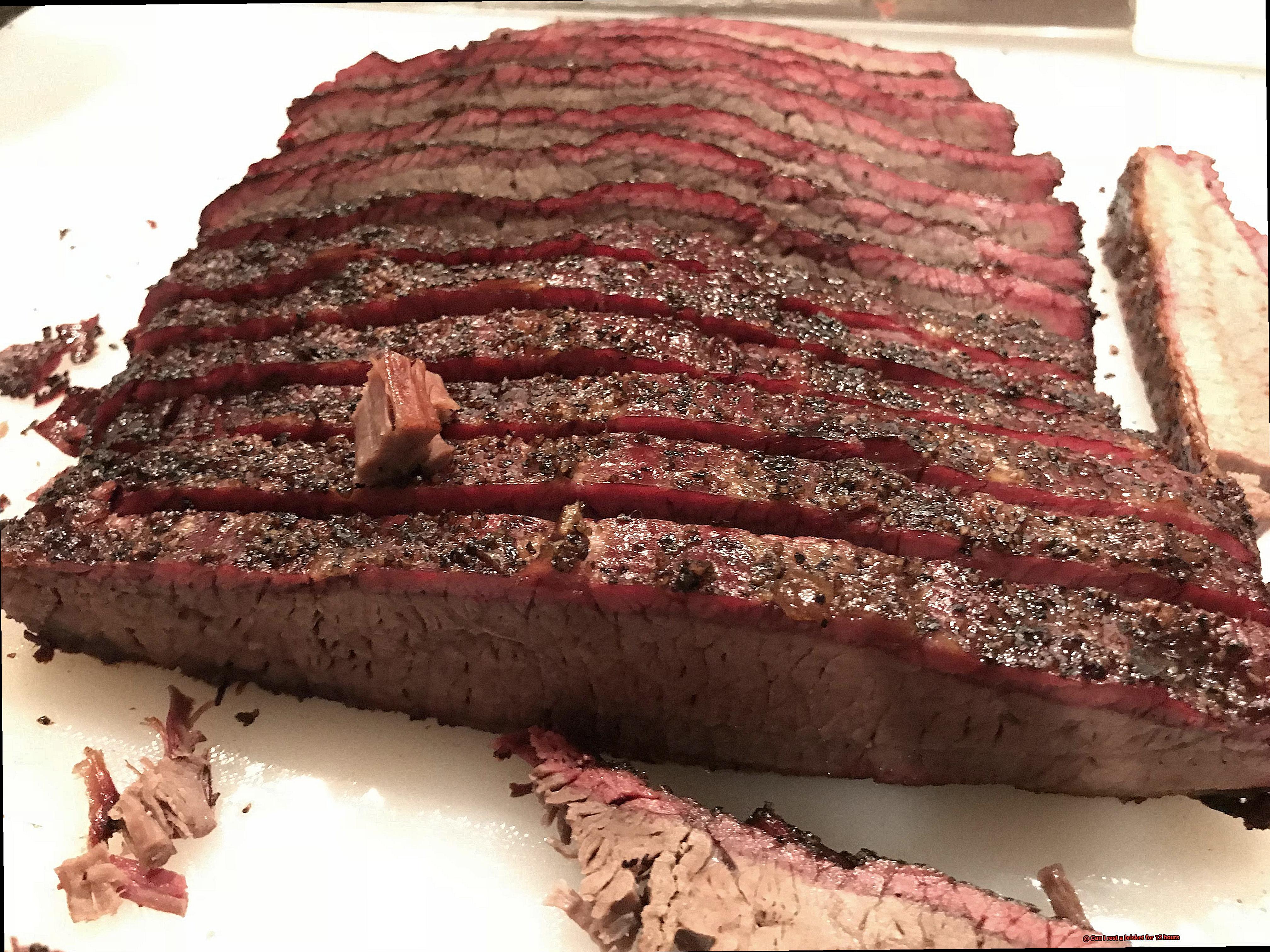
It’s essential to note that resting your brisket for too long can have negative effects on its texture and flavor. After sitting for too long, the meat can become dry and lose its tenderness. Moreover, if you’re planning to serve your brisket for a special occasion or event, you don’t want to risk having it sit out for too long and spoil.
Can You Rest a Brisket for 12 Hours?
The answer is yes, but there are important factors to consider before doing so.
Firstly, proper wrapping and storage are crucial during the resting period. Leaving your brisket uncovered or in improper storage conditions can lead to bacterial growth and spoilage – a disastrous outcome after all of your hard work. So, tightly wrap your brisket in foil or butcher paper and store it in a cooler with ice packs or a refrigerator set below 40°F.
The length of the resting period may vary based on the size of your brisket. Larger cuts may require longer resting times to allow the meat to fully relax and reabsorb its juices. As a general rule, aim to rest your brisket for at least one hour per pound of meat.
But why rest your brisket for so long? Some pitmasters believe that resting for up to 24 hours can improve the tenderness and juiciness of the meat. During this time, the meat fibers relax and reabsorb any lost moisture during cooking, resulting in a more tender and juicy final product.
It’s important to remember that resting alone won’t fix other issues with your brisket such as overcooking or under-seasoning. So, ensure you have properly prepared and cooked your brisket before resting it. Remember that patience is key, so don’t rush the resting process or cut any corners.
Factors to Consider When Resting a Brisket for 12 Hours
First things first, before resting your brisket, make sure it has reached the desired internal temperature. This not only ensures that the meat is safe to consume but also guarantees that it has achieved the desired level of tenderness. Once your brisket is cooked to perfection, it’s time to focus on where it will rest.
The environment in which you choose to rest your brisket is crucial. It’s essential to keep it in a warm and dry place to prevent bacterial growth and spoilage. To maintain moisture and prevent drying out, wrap your meat in foil or butcher paper.
Another crucial factor to consider is the size of your brisket. Larger cuts of meat require longer resting periods to allow for the redistribution of juices and create a more tender meat. So consider the size of your brisket when determining how long it should rest.
Lastly, timing is everything. If you have a specific serving time in mind, you may need to adjust the resting period accordingly. It’s recommended that you rest your brisket for at least an hour before serving. However, if you plan on resting it for 12 hours, timing is critical.
Temperature and Wrapping Techniques for 12-Hour Resting
When it comes to resting a brisket for a whopping 12 hours, it’s important to ensure that the meat remains safe to eat. The USDA recommends keeping meat at a temperature of 140°F or higher to prevent the growth of harmful bacteria. However, keeping the meat at too high of a temperature for too long can cause it to dry out. So, what’s the solution?
One popular method for maintaining a safe temperature while resting a brisket is to wrap it tightly in aluminum foil or butcher paper. This helps to retain heat and moisture, but some people take it a step further by placing the wrapped brisket in an insulated cooler or oven set to a low temperature. This will allow you to maintain the desired heat level without overcooking the meat.
Another option is to wrap your brisket for the first few hours of resting and then unwrap it for the remainder of the time. By doing this, your brisket can continue cooking while still maintaining a moist environment. However, keep in mind that wrapping can result in a softer bark on the outside of the brisket. If you prefer a crispy bark, you may want to avoid wrapping altogether or only wrap for a shorter period of time.
It’s essential to find the perfect balance between temperature control and moisture retention when resting your brisket for 12 hours. Here are some key takeaways:
- Keep your brisket at a temperature of 140°F or higher
- Wrap your brisket tightly in aluminum foil or butcher paper
- Place the wrapped brisket in an insulated cooler or oven set to a low temperature
- Experiment with wrapping techniques and monitor temperature closely
- Consider wrapping for only part of the resting time if you prefer a crispy bark
Pros and Cons of Resting a Brisket for 12 Hours
Before you try it out for yourself, let’s explore the pros and cons of this technique.
Firstly, resting a brisket for 12 hours allows the meat to reabsorb its juices. During cooking, the juices inside the meat are forced towards the surface. Resting gives time for these juices to redistribute throughout the meat, creating a more succulent final product that bursts with flavor.
Additionally, resting can make slicing the brisket easier. As the meat cools down, its internal temperature decreases, causing the muscle fibers to relax. This makes it less likely that the meat will tear or shred when you cut into it.
However, as with any technique, there are potential drawbacks to consider. One such issue is that the meat can become cold and lose its desirable texture if left to rest for too long. To prevent this, it’s important to keep your brisket warm during this time.
Another potential downside is that allowing your brisket to rest for 12 hours can cause the crust or bark on the outside of the meat to become soggy. To avoid this, some pitmasters recommend wrapping the brisket in foil or butcher paper during the rest to help preserve its texture.
Ultimately, deciding whether or not to rest your brisket for 12 hours comes down to personal preference and cooking style. However, keep in mind that many barbecue enthusiasts swear by this technique for achieving a more tender and flavorful final product. So why not give it a try and experiment with your smoker? Just remember to adjust accordingly and keep these potential issues in mind.
JLvq0Ngg42s” >
Conclusion
In the world of barbecue, resting a brisket is just as important as cooking it to perfection. It’s the difference between a dry, tough cut of meat and a succulent, juicy masterpiece. While most pitmasters recommend a resting time of at least an hour, there’s no hard and fast rule when it comes to how long you should rest your brisket.
Resting a brisket for 12 hours is possible, but it requires careful consideration and proper technique. First and foremost, you need to wrap and store the meat correctly to prevent spoilage and bacterial growth during the extended resting period. The environment in which you choose to rest your brisket is also critical – it should be warm and dry to maintain moisture levels without causing the meat to become soggy or lose its desirable texture.
Of course, there are potential drawbacks to resting a brisket for such an extended period. You may find that the outer layer becomes too soft or loses some of its bark, while others swear by this technique for achieving tender, mouth-watering results. Ultimately, it comes down to personal preference and experimentation with your smoker.
With patience, attention to detail, and a willingness to experiment with different techniques, you can achieve that melt-in-your-mouth texture and rich flavor that we all crave from a perfectly cooked brisket.

